Is Peanut Butter Healthy? Let's Uncover Its Nutritional Benefits
There are many controversies in the world of healthy foods, from dairy products to certain fruits, but one seems to stand out. The US currently eats 700 million pounds of peanut butter each year, which some will say is a good thing, and some will gasp over!
Luckily, you can't argue with hard facts, and we're here to settle the score on peanut butter's nutritional value. So, is peanut butter healthy? Let's find out!
Peanut Butter Nutrition Facts
It's no secret that peanut butter is a popular spread in the US and around the world, so there are several major peanut butter brands available. As a consequence, nutrition facts can vary widely.
However, we can still identify the key nutritional value of a generic peanut butter spread. Here's what you should expect for a 2-tablespoon serving (30 to 35 grams):
- 190 Calories
- 16 Grams of Far (2.5 grams of saturated fat)
- 7 Grams of Carbohydrates
- 3 Grams of Fiber
- 2 Grams of Sugar
- 8 Grams of Protein
Some peanut butter brands will come with added sugar or sweeteners like honey or maple syrup, but the 2 grams of sugar is included in natural peanut butter.
Most peanut butter brands will also come with no cholesterol, and some will come with sodium added for flavor. It's always best to check the label ahead of time.
Also, 3 grams of fiber may not sound like much at first glance, but that's over 11% of your recommended daily intake (RDI), which isn't bad for two tablespoons!
Fiber is essential for proper digestion, regulating your body's use of sugars, and helping us feel full throughout the day. Most calorie-dense foods have the opposite effect, leaving us hungry for more.
Lastly, depending on the brand that you buy, you can get reduced fat and no added sugar in your peanut butter. Always check the label to see the nutrition facts if you're worried about it.
Types of Fat
Out of the macronutrients (proteins, carbohydrates, and fats), fat is the most calorie-dense by far. Your calorie intake is largely determined by these macronutrients, and carbohydrates and proteins each have 4 calories per gram. However, fats have 9 calories per gram, more than double that of proteins and carbs.
Since peanut butter is a fat source, those calories add up quickly, especially if you aren't measuring an exact serving. More importantly, let's talk about the types of fat involved.
2.5 grams of saturated fat is already 13% of the average person's RDI, and the 16 grams of total fat is even higher at 21%. While everybody has different needs, that's still a sharp portion for two tablespoons!
The majority of these fats are monounsaturated and polyunsaturated fats, which are generally associated with less risk of weight gain when used in moderation. When used in smaller quantities, they can be part of a healthy diet.
In terms of fat sources, there are far worse options to choose from. Heavy sauces, oils, and salad dressings are even more calorie-dense and the quality of the fats is likely to be lower.
Protein
Peanut butter does have protein. For a plant-based diet, 8g can certainly help you reach your protein intake goals. You have to take what you can get.
Also, don't listen to anybody who tells you that peanut butter doesn't have "complete proteins", or proteins that contain all of the essential amino acids. Therefore, they argue, these proteins won't help you build muscle or develop a leaner physique. This is far from the case.
First of all, every protein has the essential amino acids in a complete protein, some just have smaller amounts. This is a common misconception about plant-based proteins.
Second, as long as you consume enough of the lacking amino acids in your diet within 24 hours, which you're almost certain to do, these proteins will perform the same functions as proteins from animal products. You would have to try to not eat the lacking amino acids within 24 hours, so don't even worry about it.
If you are worried, pair your peanut butter with whole-grain toast, hemp seeds, or oats, which are all rich in methionine, the lacking amino acid in peanuts, then you will "complete" your protein.
Micronutrients
In terms of macronutrients, peanut butter is a fat source first, a protein source second, and barely a carb source at all. That's why it's so often associated with toast, oatmeal, and some fruits, which are all dense with carbohydrates.
Moreover, those determine calories far more than nutritional value. Peanut butter is a surprisingly high source of calcium, which many people struggle to consume enough of in their diets, especially from plant-based sources.
One serving of peanut butter has up to 19% of your RDI of calcium. Compare that with spinach, which is often toted as a micro nutritional goldmine (which it is) but only has 2% of your RDI for calcium.
Also, peanut butter has over 25% of your RDI for niacin, which is essential for digestion, nerve function, and energy production.
Not only that, but it has more than 10% of your RDI for magnesium, zinc, vitamin B6, and phosphorous, all of which are essential minerals that your body needs to survive.
Lastly, you'll find 4% of your RDI for potassium and 6% for iron. If you pair your peanut butter with a banana, you can dramatically increase your potassium intake and have a delicious snack!
Is Peanut Butter Healthy?
The problem with peanut butter is its calorie density. If you rub two tablespoons on your toast, it isn't a big deal. However, the visual difference between 200 calories and 400 calories is very slight with peanut butter.
For those trying to lose weight, this can pose a problem. Gaining weight or remaining at a calorie surplus can lead to serious health conditions including obesity and diabetes, which can bring several other conditions with them.
To be fair, the micro nutritional value of peanut butter is surprisingly good, especially compared to other calorie-dense foods like oils or sauces.
Also, eating nuts in any form is one of the best additions you can make to your diet. While variety is important, studies have shown that eating roughly 30 grams of nuts daily can lead to a longer life!
All in all, peanut butter is an excellent dietary addition to help people gain weight, lose weight, and eat a healthy, well-rounded diet, especially when consumed in moderation. Are there better options?
Alternatives to Peanut Butter
Now that you understand the benefits and nutritional value of peanut butter, you may be wondering if it's right for your diet. No two people are the same when it comes to diet, not even identical twins!
For that reason, you may still be wary about using such calorie-dense food in your diet. If so, here are some alternatives to peanut butter to choose from!
Almond Butter
Without a doubt, almonds are the healthiest nut. While there is some debate around the order, the general consensus is that cashews, walnuts, peanuts, and pistachios are among the top five healthiest nuts, but almonds always rank at the top.
For that reason, almond butter has become more popular in recent years, with a variety of flavors to choose from.
Almonds are rich in quality fat and have similar calories and levels of protein to peanuts, along with less than half of the saturated fat and sugars.
Cashew Butter
Cashews and peanuts are very similar in nutritional value, but there are a few important distinctions. Cashew butter will have slightly less protein and fiber than peanut butter, and its micronutrient profile is a little weaker.
On top of that, cashew butter tends to be higher in sodium, but still has less sugar and saturated fats than peanut butter!
While cashew butter may lack comparative nutritional values, people generally use it for its rich, unique taste, or due to a peanut allergy in the home!
Seed Butters
Let's be entirely honest and say that seed butters don't taste the same as nut butters. However, they can satisfy the urge for anybody with an allergy to peanuts and tree nuts.
If you like peanut butter but can't eat it, then seed butters are your best alternative, especially if you are allergic to multiple nuts.
Spread It and Forget It
Now that we've answered the question "is peanut butter healthy?", you can make an informed decision for your dieting goals. Peanut butter is an excellent incorporation for most dietary needs, just like other nut butters available.
Stay up to date with our latest peanut butter tips and try some new peanut butter flavors for yourself!
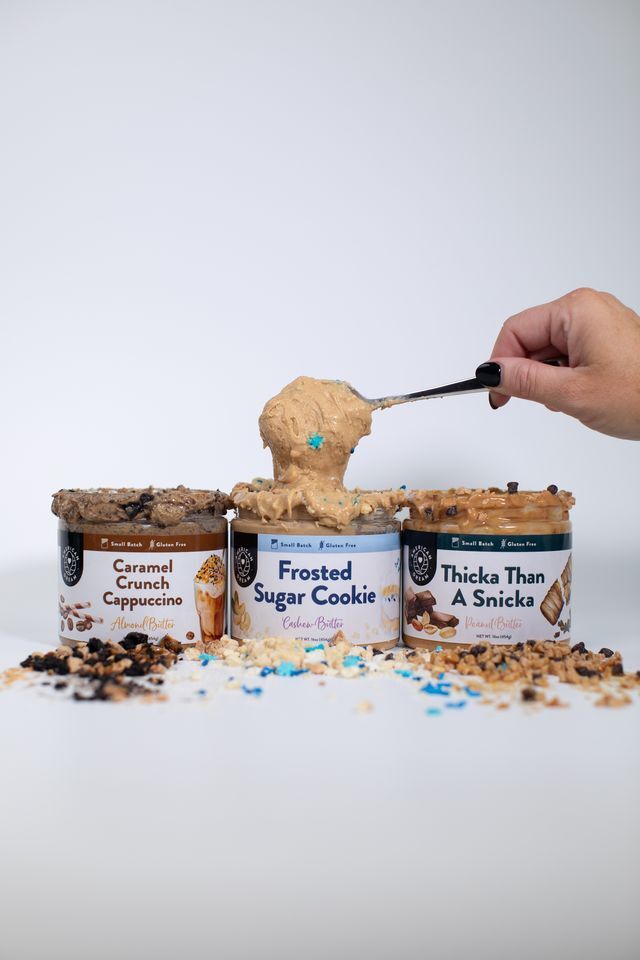 All Nut Butters
All Nut Butters
 Newest Flavors!
Newest Flavors!
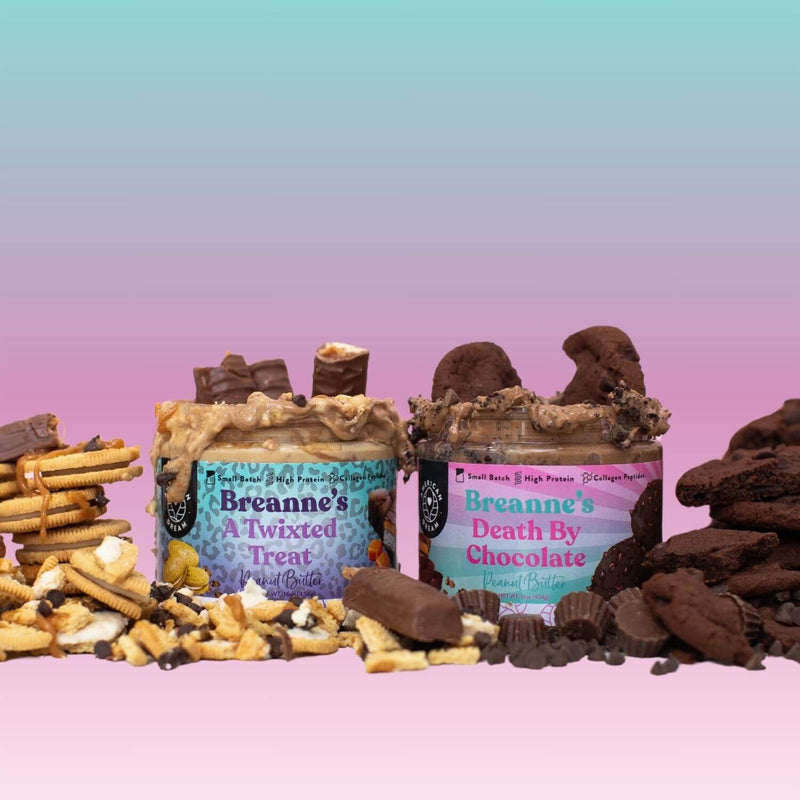 High Protein
High Protein
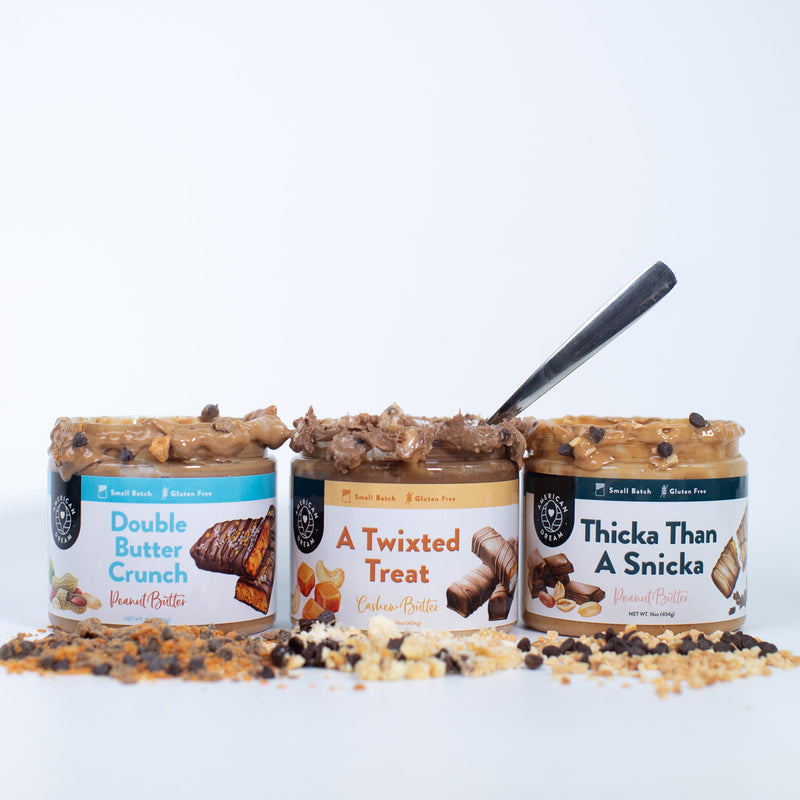 Butter Bundles
Butter Bundles
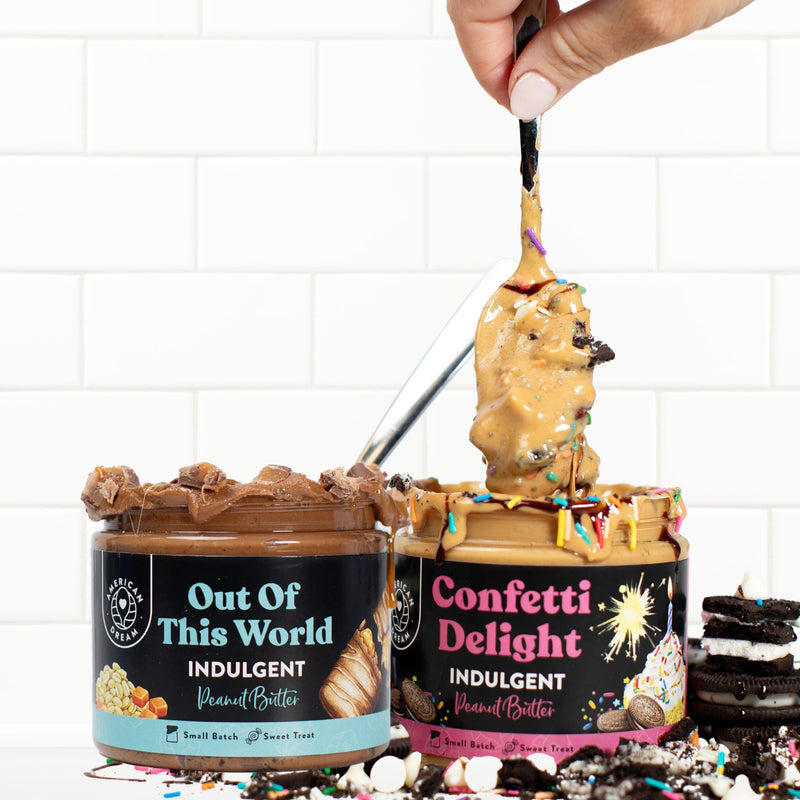 Indulgent Butters
Indulgent Butters
 Cookies
Cookies
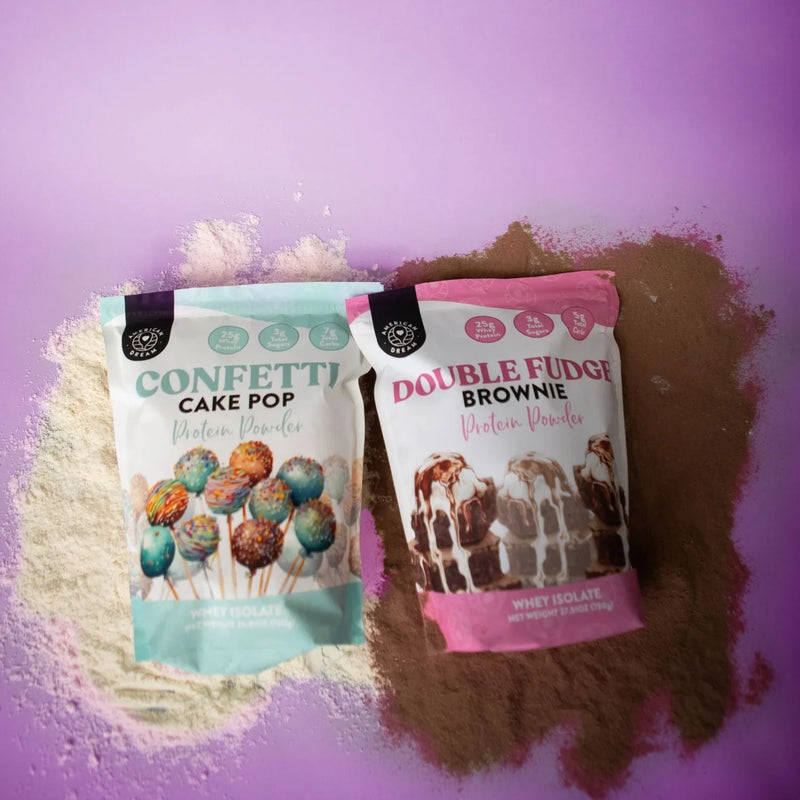 Nutrition
Nutrition
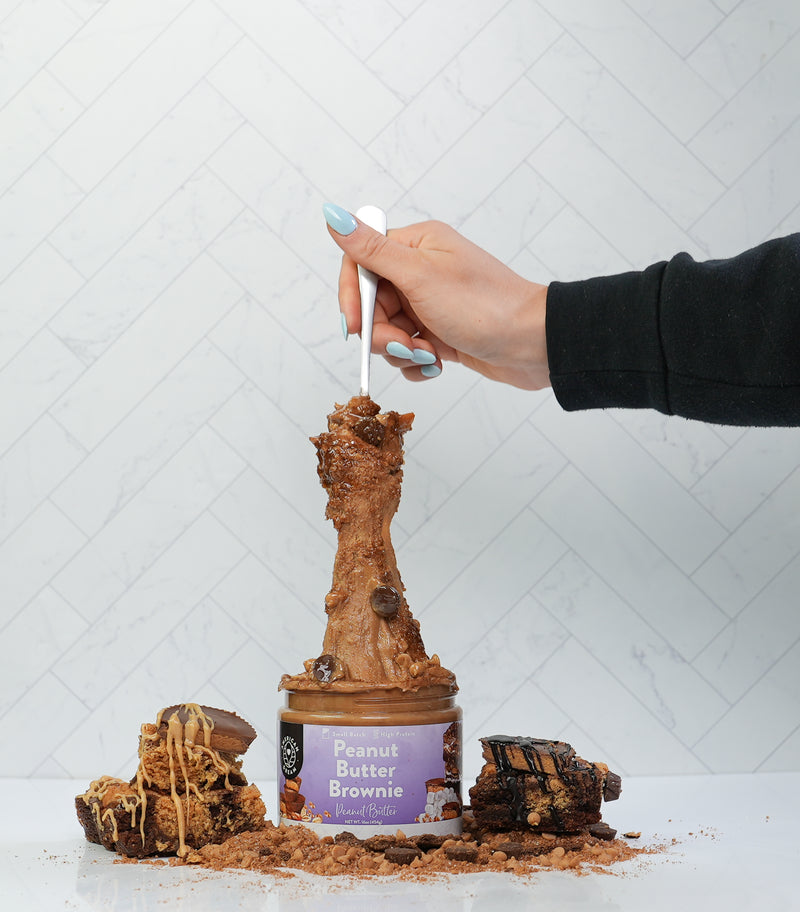 Retiring Soon
Retiring Soon
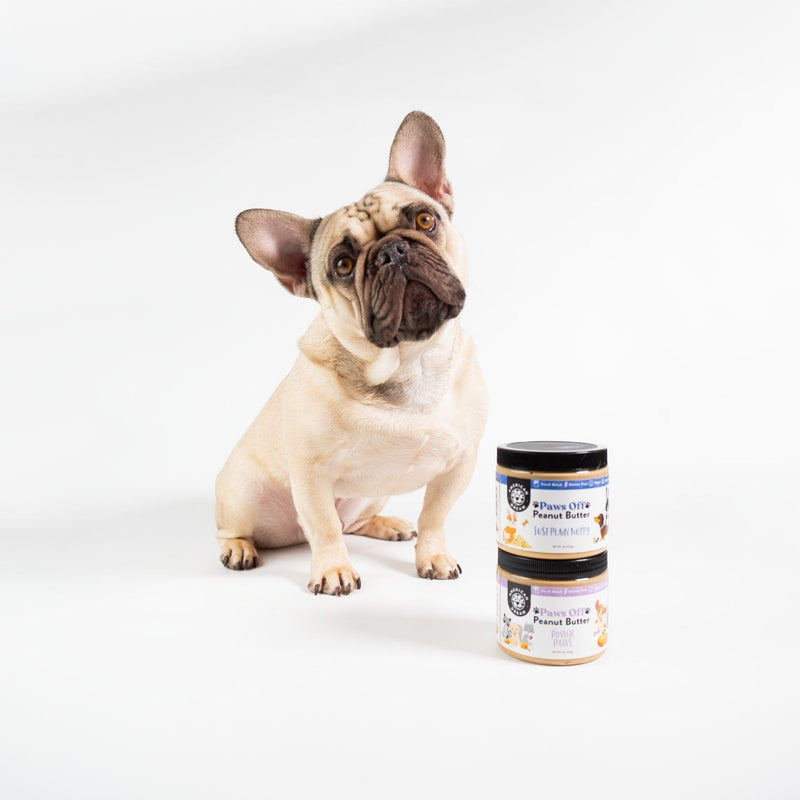 Paws Off
Paws Off
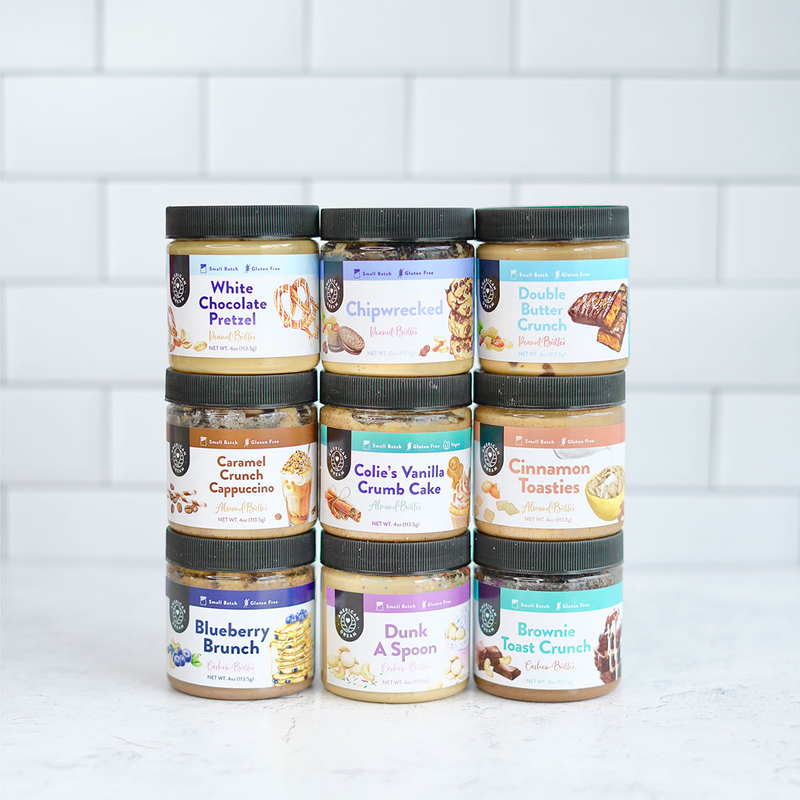 Sample Sizes
Sample Sizes
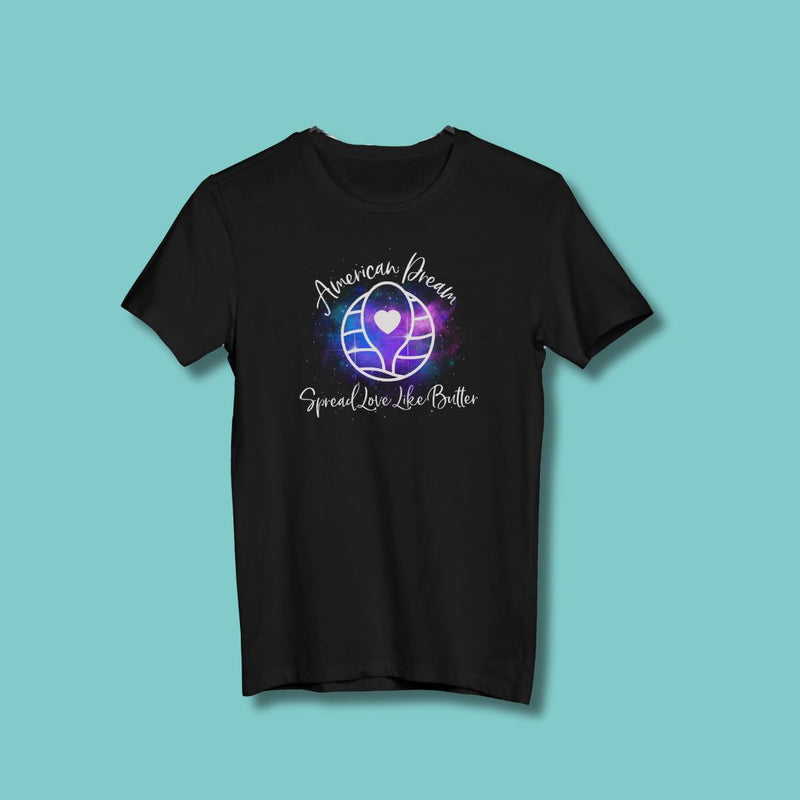 Merch
Merch
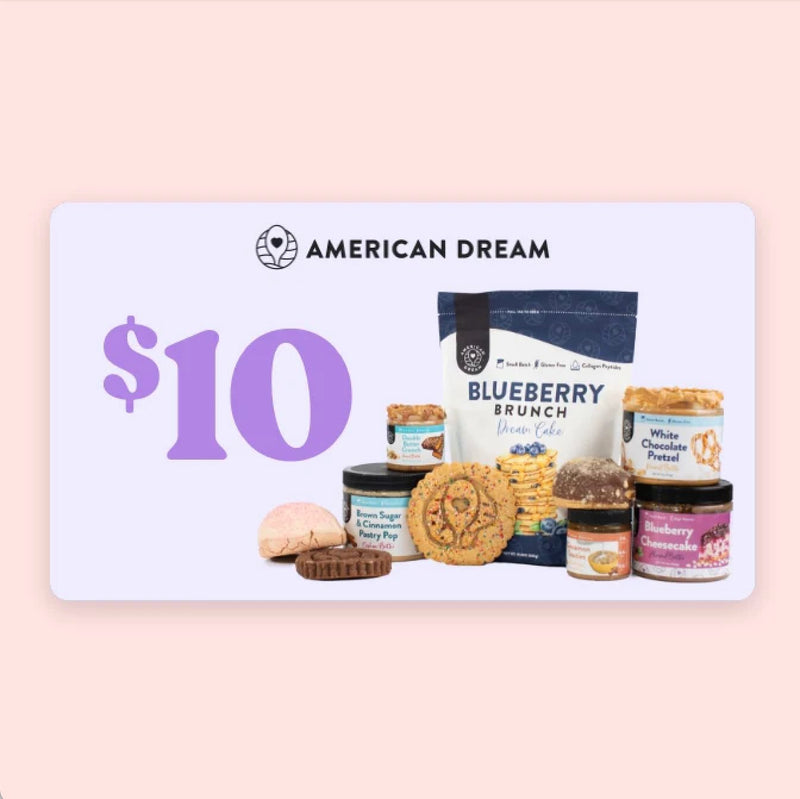 Gifting
Gifting

